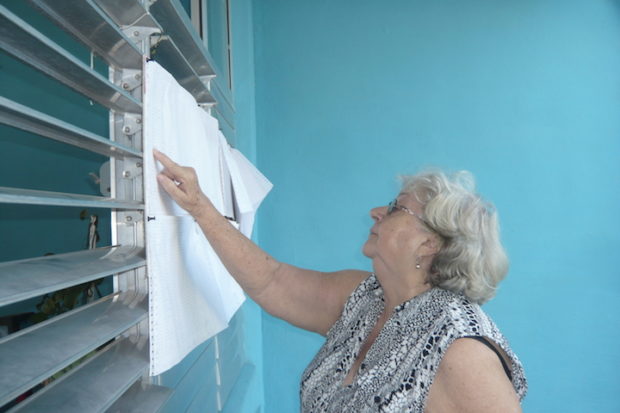
By Leni Villagomez Reeves
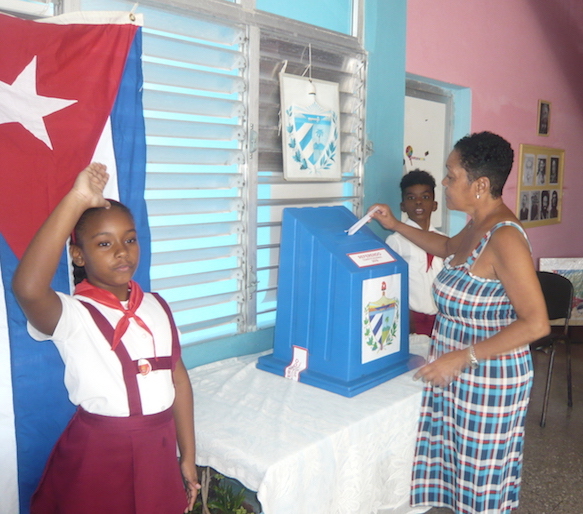
The ballot is secret, which is why there are no photos of people actually marking their ballot. Schoolchildren guard the ballot boxes and acknowledge the voters as they deposit their ballots.
The process of creating a new constitution was completed with the approval of the Cuban people in a referendum process that took place on Feb. 24, 2019.
It was a multiyear effort to draft the constitution, and then the public comment period began. More than 135,000 meetings later, complete with facilitators taking notes on people’s comments, about 60% of the articles of the constitution had changes made in response to the people’s input.
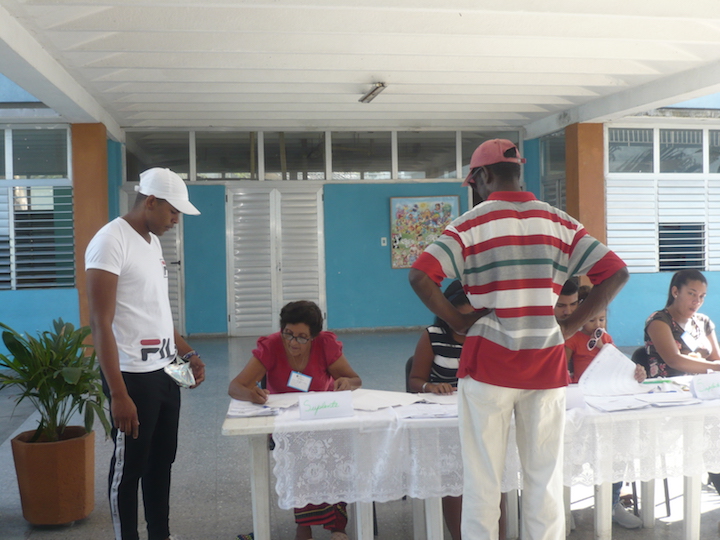
Polling place workers find the voters’ names and hand them their ballots.
Then the people voted on it. A little more than 84% of the Cubans eligible to vote (citizens 16 and older) did vote. Of that number, close to 87% voted yes. (There were also about 2.5% blank ballots and 1.6% invalid ballots.)
The no votes (9%) were mostly driven by objections to the idea of making marriage possible for same-sex couples. Some of the churches did a lot of campaigning on this issue, and it was the issue on which most comments were received.

Casting a ballot. (Tattoos are common among Cuban youth, both men and women. So are brand names—of often dubious authenticity.)
The wording of the article regarding marriage was changed in response to comments received. The original wording began “Marriage is the union voluntarily entered into by two people…”
The revised version that went to the referendum process was “All persons have the right to establish a family…Marriage is a social and juridical (legal) institution. It is one of the forms by which families can organize. It is founded in the free consent and the equality of rights, obligations and legal capabilities of the 2 spouses.” Apparently, the religious fundamentalists didn’t like that one any better.
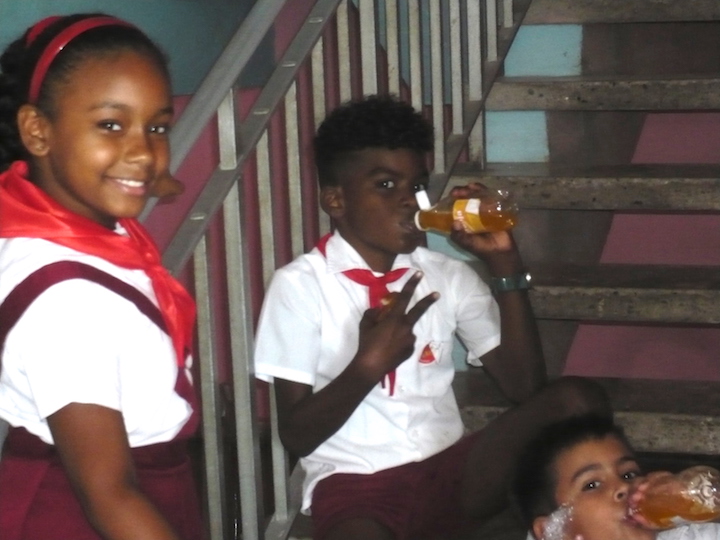
The children take a juice and snack break.
There are several ways to look at this vote. One is the “glass is about three-quarters full” view. Everyone had their views listened to and responded to, and after a process with abundant meaningful public participation, more than 73% of Cubans actively approved this document.
The other view is that although voter turnout of 84.5% sounds high here, turnouts less than 90% are not common in Cuba, and a 9% no vote represents a substantial part of the Cuban people who are not part of the social consensus on the issue of egalitarian marriage. This shows that homophobia is still present in the culture, and there is more work to do.
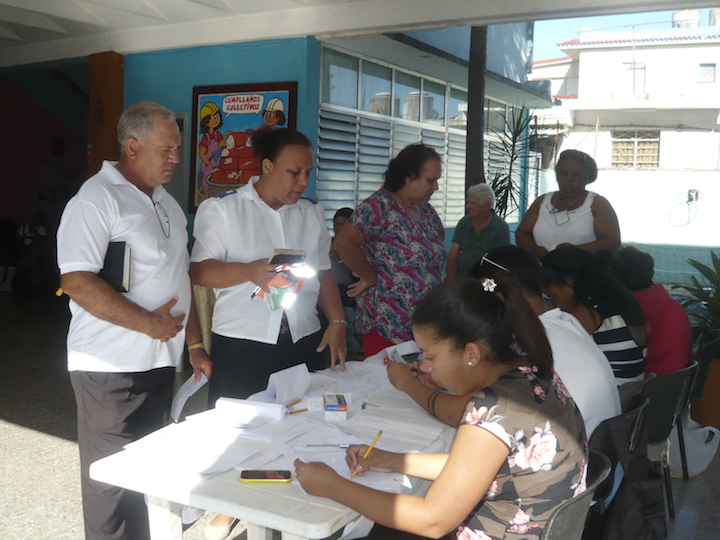
The Salvation Army, Bibles in hand. It’s a secret ballot, but it’s a good bet they showed up to vote no.
The new constitution has an amazing preamble. It begins: “We the people of Cuba, inspired by the heroism and patriotism of those who struggled for a free homeland, independent, sovereign, democratic, of social justice and human solidarity, forged in the sacrifice of our predecessors; by the indigenous people who resisted conquest; by the slaves who rebelled against their masters…”
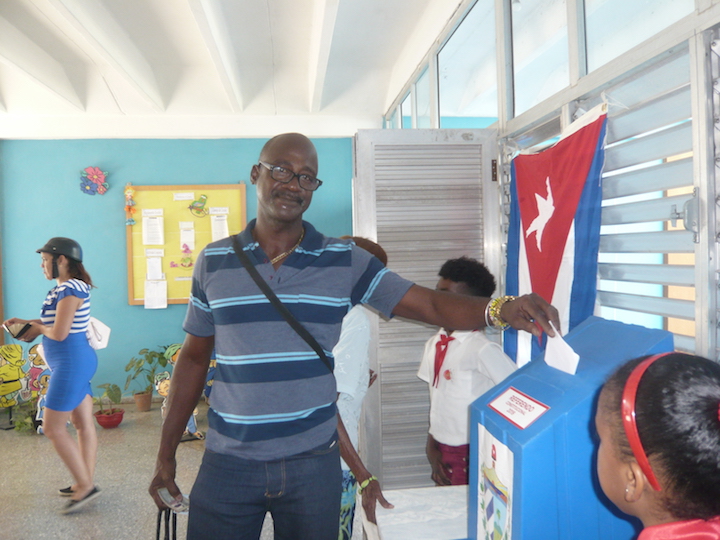
Casting a ballot, and the bracelets on this voter’s left wrist indicate that he adheres to an African-based religion such as Regla de Ocha (Santería). These religious groups did not campaign against egalitarian marriage and the constitution. That campaign was carried out by the U.S.-linked fundamentalist Protestant churches.
What other constitution in the world has references either to First Nations resistance or the rebellion of enslaved people as an inspiration?
So Cuba is still working on it. A country under construction—something new in the world, worth keeping an eye on. We might learn something.

Belkys Casanova—who’s in charge here? She is! Welcome to Voting Site No. 4, Marianao, Havana, Cuba.
(Author’s note: Many thanks to Belkys Casanova, presidenta de Colegio Electoral No. 4, who provided the author free rein to observe and photograph this and other elections.)
*****
Leni Villagomez Reeves is a local physician and activist. Contact her at lenivreeves@gmail.com.
